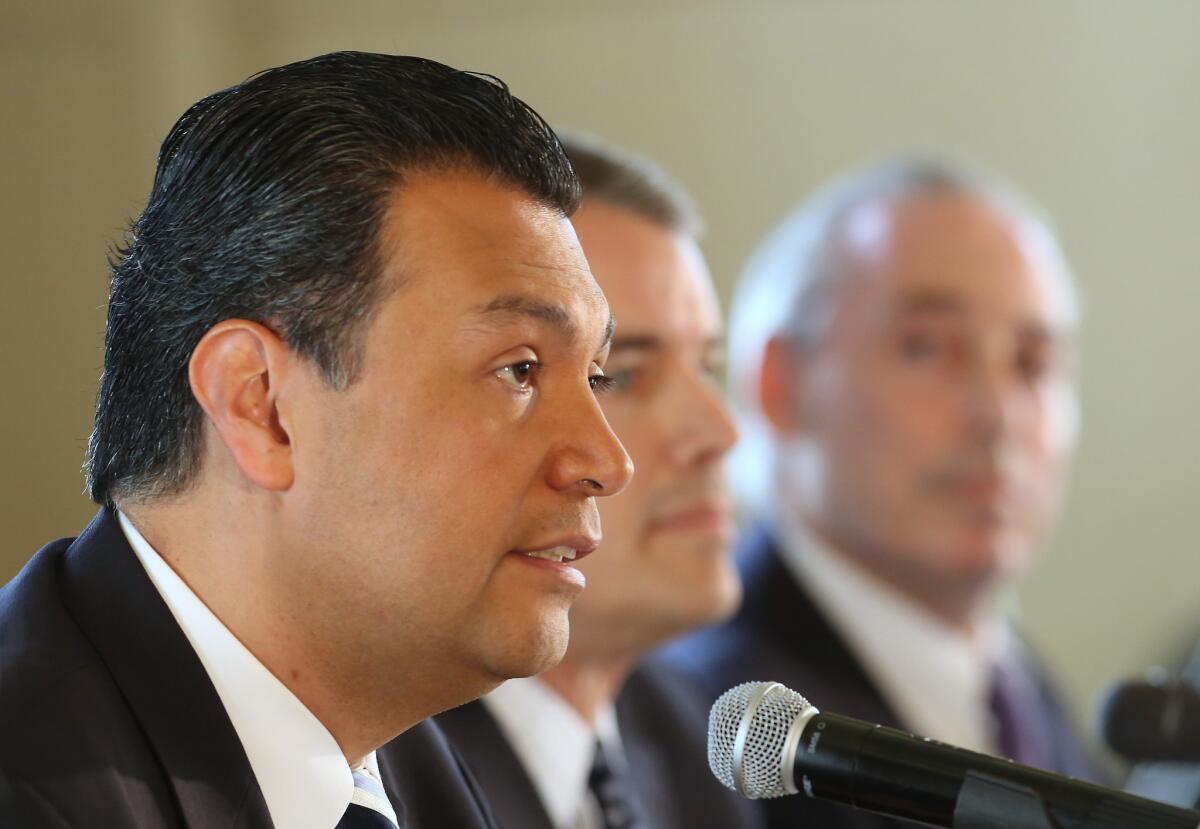Editorial: When money shouldn’t talk in Sacramento

If there’s a silver lining to the dark cloud of bribery and public corruption scandals hanging over Sacramento, it’s the possibility that legislators might finally do something to limit the corrosive influence of money in politics. The state Senate is considering nearly a dozen bills that would, among other things, tweak existing rules to require more frequent campaign finance disclosures, ban fundraisers at lobbyists’ homes and limit campaign spending on personal expenses.
One of the more far-reaching proposals, which comes from Sen. Alex Padilla (D-Pacoima), would bar legislators from soliciting or accepting campaign contributions during the final 100 days of the legislative session and for seven days after the session ends. This is the period when legislators make final amendments to bills and cast their votes on critical end-of-session legislation. It’s also a key fundraising time for lawmakers, when scores of breakfasts and cocktail parties are held at restaurants near the Capitol so legislators can pop over to an event, schmooze with donors and lobbyists, get their contribution checks and make it back to the floor in time to vote. It’s all perfectly legal yet terribly unseemly.
Senate Bill 1101 would put a stop to those kinds of transactions, which give donors an unacceptable ability to influence decisions in real time. Even if a lawmaker can truly be unswayed by receiving a $4,100 check hours before casting a vote, the exchange creates the appearance that his vote was bought, which further undermines public trust in the political system.
That’s one reason Dan Schnur, an independent candidate for secretary of state, has called for a ban on contributions during the entire seven or eight months of the session, to keep legislating and money-raising separate. Padilla, who is also running for secretary of state, questioned whether courts would allow such a long blackout period, which might unfairly limit contributors’ and candidates’ free-speech rights. Whether legislators settle on a 107-day ban or something longer, we urge them to enact a blackout period.
We are under no illusion that a temporary restriction on contributions will erase the influence of money in politics. Special interests would still be allowed to give to legislators’ campaigns 258 days of the year, or they could use their money at any time to fund an independent expenditure committee on behalf of or opposed to a legislator. We don’t know how many contribution checks will simply be postdated or whether the ban will change the culture within the Capitol. But that doesn’t mean we shouldn’t try to fix a broken system.
More to Read
A cure for the common opinion
Get thought-provoking perspectives with our weekly newsletter.
You may occasionally receive promotional content from the Los Angeles Times.










